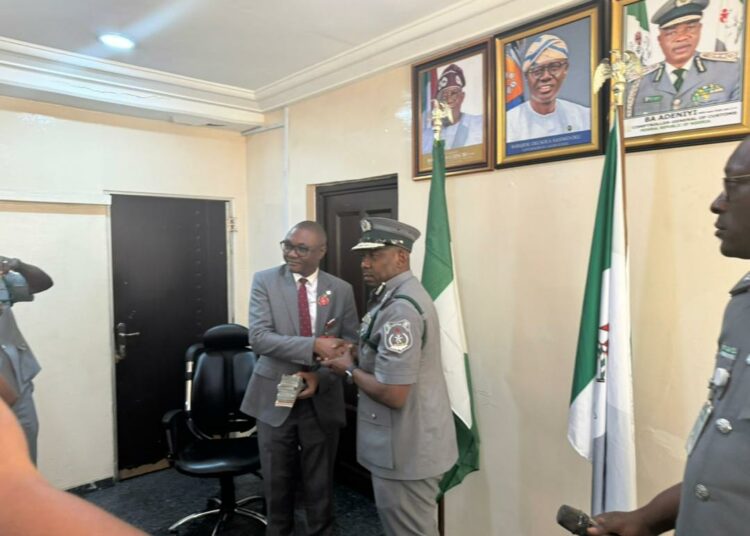The officers of the Nigeria Customs Service (NCS), on Tuesday, handed over $54,330 bribe money its officers rejected from importers of tramadol at the Tin-Can Island Command of the service.
In a press statement made available to LEADERSHIP by the command’s Public Relations Officer (PRO), Ngozi Okwara, the rejection of the bribe money was in line with the zero tolerance of the Comptroller General of Customs, Bashir Adewale Adeniyi.
According to Okwara, the Tin Can Island Command Customs Area Controller, Compt. Dera Nnadi, however, handed over the bribe money to the Lagos Zonal Commander of the Economic and Financial Crimes Commission (EFCC), Michael Wetkas.
According to Compt Nnadi, the tramadol were falsely declared as electrical appliances valued at over N856m with a view to conceal them while the cash were offered to compromise the customs officers
The Controller said the act is in clear violation of Section 233 of Nigeria Customs Service Act (NCSA) 2023 and commended the officers who stood their grounds to work ethically and lawfully in the interest of national security
He further called for continuous compliance on the part of port users and reminded them that the NCS with the collaboration of sister agencies like EFCC will continue to frustrate criminal activities in the port
Nnadi thanked Comptroller Oloyede, who under his watch, this seizure was achieved and described him as a good example of the NCS.
He said the two suspects arrested in connection with the two containers are currently being investigated by the National Agency for Food Drug Administration and Control for possible prosecution.
Wetas, while taking over the cash,
described the feat as a victory for the country and to all the security agencies. He specifically celebrated the officers of the NCS that achieved it.
Wetkas also lauded the Comptroller General for the letter of commendation in appreciation of the six customs officers who refused to bow to pressure and inducement from the owners of the illicit drugs.
He promised continued collaboration between the EFCC, NCS and sister agencies. According to him, the era of working without collaboration is gone as the agencies now work closer
We’ve got the edge. Get real-time reports, breaking scoops, and exclusive angles delivered straight to your phone. Don’t settle for stale news. Join LEADERSHIP NEWS on WhatsApp for 24/7 updates →
Join Our WhatsApp Channel










